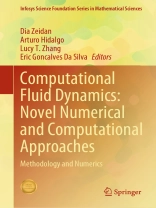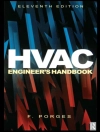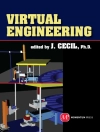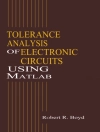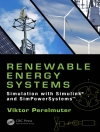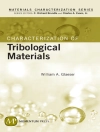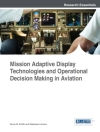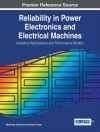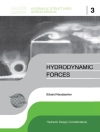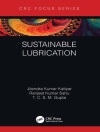This book reveals the latest research outputs in computational fluid dynamics. It contains selected chapters on fluid flow problems authored by international researchers. It highlights the current trends in the modelling and simulation aspects of fluid dynamics. Even though modelling and simulations in fluid dynamics are now considered mainstream in analysing fluid flows, heat and mass transfer problems, researchers are still exploring various numerical approaches and recipes to achieve better accuracy and efficiency for challenging applications in biomedical, aerospace, renewable energy and other industrial engineering applications. The book aims to bring many of the diverse modelling and simulation tools in one place and to advance existing progress in the emerging sciences of fluid dynamics. It summarizes current mathematical and physical modelling approaches as well as computational techniques applicable to fluid dynamics. The book would be of special interest to physicists and researchers in several fields related to computational, applied sciences and engineering.
Tabela de Conteúdo
Chapter 1 Solid Particle Movement Simulation.- Chapter 2 A Central Finite Volume Surface Gradient Method.- Chapter 2 A Central Finite Volume Surface Gradient Method for the Two-layer Shallow Water Equations with Rigid Lid.- Chapter 3 Compressible Enstrophy Transport for Flow in a Low-pressure Turbine with Unsteady Wakes Impinging at the Inflow.- Chapter 4 Improving the Cooling Efficiency of Microchips by Vapor Chamber.
Sobre o autor
Dia Zeidan is a Professor of Applied and Computational Mathematics at the German Jordanian University, Amman, Jordan. He is Elected Fellow of the European Society of Computational Methods in Sciences and Engineering. An active researcher in developing mathematical and numerical tools for multiphase fluid flow problems for several years, he is recognized for research contributions in applied and computational mathematics with multiphase flows including his creative approaches to teaching and research. His work has been highly interdisciplinary, involving international collaborations with applied and computational researchers. Among various institutional obligations, he has been a visitor to several important international research groups bridging national research infrastructure gaps in Jordan. He serves on several expert review panels, as Technical Editor and Reviewer for several peer-reviewed journals, and as Member of several program committees of technical conferences around the world.
Arturo Hidalgo Associate Professor of Applied Mathematics at Universidad Politécnica de Madrid, Spain. A Ph.D. in Mining Engineering, he has developed his work in the numerical resolution of partial differential equations, mainly based on the finite volume method. The fundamental lines of research are related to numerical simulation applied to several physical, technological and biological problems. In particular, much of his scientific activity has focused on the development and implementation of numerical simulation techniques in finite volumes applied to various physical–technical problems such as the transport of radioactive substances in the geosphere, through groundwater, flow multiphase, simulation of the movement of hydrocarbons in the subsoil (water-oil systems), problems related to global climate, biomedical applications or problems governed by the shallow water equations. He has also participated in several research projects, both with private companies and public administration. He is the author of around 30 scientific papers published in high-impact scientific journals, with more than 1100 citations, and has also presented about 50 communications at international scientific conferences. He also belongs tothe recently created Center for Computational Simulation at the Universidad Politécnica de Madrid and the Mineral Resources research group of the same university. He also actively collaborates with research groups from Spanish universities: Complutense University of Madrid, Polytechnic University of Valencia, University of Malaga, Polytechnic University of Catalonia, among others, as well as the collaboration with the Universita degli Studi di Trento, Italy.
Lucy Zhang is Professor at the Department of Mechanical, Aerospace and Nuclear Engineering at Rensselaer Polytechnic Institute (RPI), Troy, New York, U.S.A. She was recently named a Fellow of ASME. She received her B.S. from Binghamton University in December 1997, and obtained her M.S. and Ph.D. from Northwestern University, in 2000 and 2003, respectively. Upon graduation, she joined the Department of Mechanical Engineering at Tulane as Assistant Professor in July 2003. In August 2006, she moved to Rensselaer Polytechnic Institute. Her research interests are building advanced and robust computational tools and software for accurate and efficient multiphysics and multiscale simulations that can be used for engineering applications in biomechanics, micro and nano-mechanics, medicine, and defense projects involving impacts. She has published 3 books, more than 55 highly cited peer-reviewed journal papers, and more than 20 peer-reviewed conference papers. In 2016, she received the Young Investigator Award at the International Conference for Computational Methods. Her pioneer work in developing the immersed finite element method has been widely used in academic engineering and scientific communities. She isnow developing open-source tools and technology that can conveniently and efficiently couple any existing solvers for multiphysics and multiscale simulations and analysis.
Eric Goncalves Da Silva is Professor and Head of the Department of Fluid Mechanics and Aerodynamics, Aeronautical Engineering, School ISAE-ENSMA, Poitiers, France. His research interests are related to the modeling and the simulation of flows for which the density is variable such as compressible flow, two-phase flow and cavitation. His recent work includes shock wave boundary layer interaction, shock-bubble interaction and investigation of three-dimensional effects on cavitation pocket.
